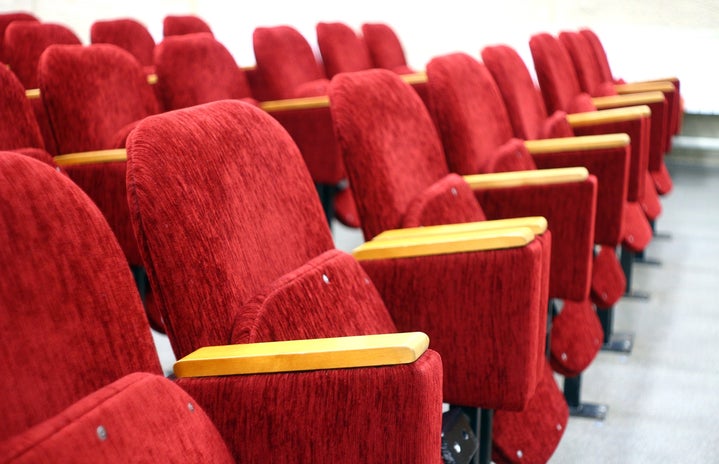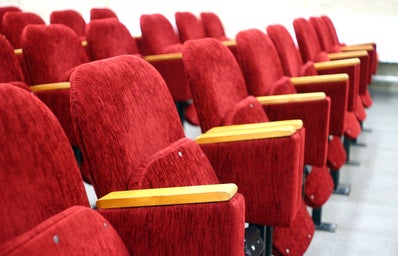Another list of Oscar nominees has come out lacking in representation across the board—this comes as a shock to no one, least of all women. There are some standout nominees (Stephanie Hsu, Michelle Yeoh, Angela Bassett, and Hong Chau) whose achievements should not be disregarded. But the list is still—as usual—largely white and male.
Natalie Portman stirred up attention, both from supporters and haters, at the 2018 Golden Globes when she announced the nominees for Best Director, referring to them as “the all-male nominees.” While this was a valid criticism, this “mistake” was corrected by the Oscar nominees that followed in 2019, which had Greta Gerwig up for Best Director for her work on “Lady Bird.”
While we can bash the academy all day long (and we should) for its lack of representation, many people quickly respond to this criticism with the idea that women just were not making good films that year. I would like to agree with this… kinda. There is a long list of women that should have been nominated this year: Sarah Polley for “Women Talking,” Gina Prince-Blythewood for “The Woman King,” and Charlotte Wells for “Aftersun,” to name a few. Despite this list, year after year, men continue to dominate the Best Director category because they continue to dominate the industry as a whole.
This domination isn’t due to a short supply of talented female directors, but maybe those aforementioned people are right about not having many women even making movies—especially when A-list actors aren’t even trying to work with them. Although this does not diminish Natalie Portman’s criticism of “the all-male nominees,” she has only ever worked with three female directors over her 30-year career (the same amount as Leonardo DiCaprio). Ben Stiller, Matt Damon, and Tom Cruise are three of the most famous actors, and not one of them has ever worked with a female director. Brad Pitt has only ever worked with one female director in the entirety of his career, and she was his wife. Johnny Depp and Ben Affleck are amongst a long list of other A-listers who have worked with female directors a whopping….. two times.
There are not nearly as many female directors in Hollywood as there are male directors, but is it because they aren’t as talented, or because they aren’t getting work? If the Academy was more willing to nominate female directors, maybe A-listers would be more inclined to seek them out. But if more A-listers were choosing to work with female directors, maybe the Academy would be more willing to nominate them. And so the wheel keeps on turning. This same issue goes for directors of color, considering the only non-white director nominated this year is Daniel Kwan, one of “The Daniels” behind “Everything, Everywhere, All At Once.” There are also no Black actors nominated for Best Actor or Best Actress, proving that despite facing repeated criticism for their lack of representation, the Academy refuses to diversify its list of nominees (and it’s not for lack of talented and deserving options).
So, while you can’t change the 2023 list of Oscar nominees, you CAN still support female directors by watching their films. While I highly recommend checking out the movies by female directors many considered to have been “snubbed,” Sundance is also a great place to check out less well-known or up-and-coming women directors. Just because it’s not surprising to see the Oscars has yet again failed female directors, it’s important to look towards the actors (especially those we love the most) to see if those we support are also supporting women and people of color in the industry.


